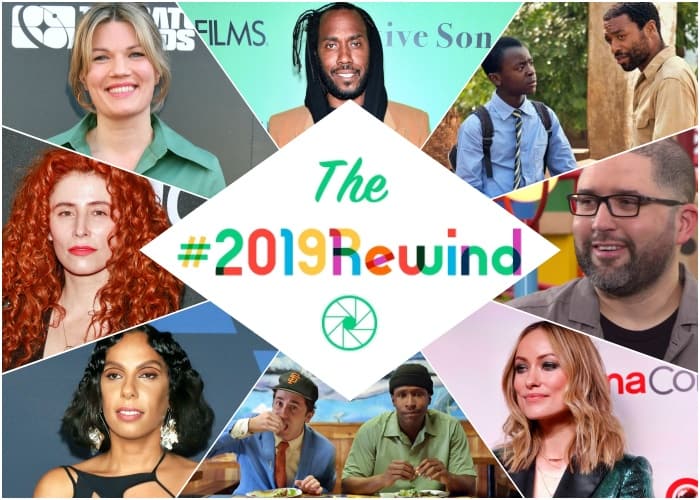
This article is part of our 2019 Rewind. Follow along as we explore the best and most interesting movies, shows, performances, and more from 2019.
Anticipation is a helluva drug. We all have our favorite filmmakers, and we all enjoy the time we spend contemplating and considering their next great piece of art. Like every other year, 2019 saw a slew of our most precious auteurs conjuring material worthy of their finest achievements. Claire Denis, Greta Gerwig, Martin Scorsese, Quentin Tarantino. Masters. It’s a delight to skip out of their screenings and hit Twitter with furious enthusiasm.
My preferred cinematic narcotic, however, are the new flavors I discover. As gratifying as The Irishman is, you know what you’re going to get from a chef like Scorsese. He’s going to deliver. The true treats are the Get Outs of this world; the movies that seemingly come from nowhere and sock you right in the jaw. God damn, what was that? There is nothing quite as delicious as the shock and awe of debut filmmakers.
2019 came out guns blazing during this year’s Sundance Film Festival, supplying a crop of badass new talent, and the year never quite let up after that. We saw seasoned actors take their seat behind the camera for the first time, young kids radicalizing the very form itself, and fresh perspectives screaming for attention.
Paul Downs Colaizzo (Brittany Runs A Marathon)
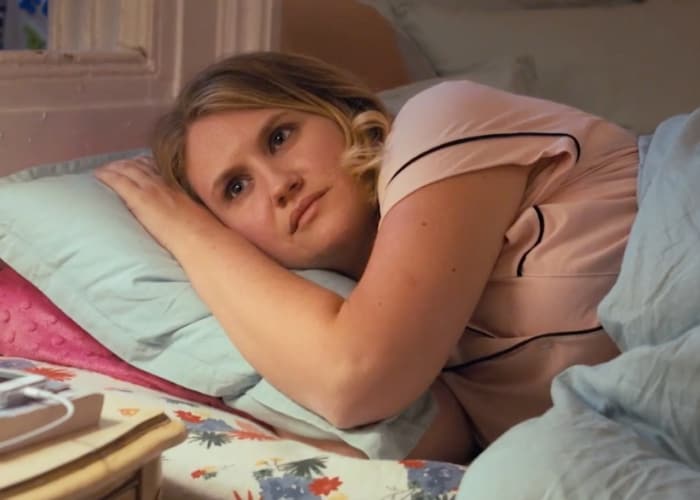
There is a version of Brittany Runs A Marathon filled with judgment, snark, and mockery for its lead and her conversion from apathetic party monster to self-care champion. Thankfully, writer/director Paul Downs Colaizzo brings his love for his real-world roommate’s transformation to the proceedings, and the film we get is an honest exploration of a doubt-filled dread most humans encounter at some point in their lives. Many don’t have the support to recover from such inner torment, and while Colaizzo never steers too far from giving the credit to the one who makes the radical alteration, his screenplay also salutes those that never surrender to the misery of their friend. Brittany Runs A Marathon delivers courage all around and it’s impossible to leave the film unmotivated to tackle your own festering concerns.
Josh Cooley (Toy Story 4)
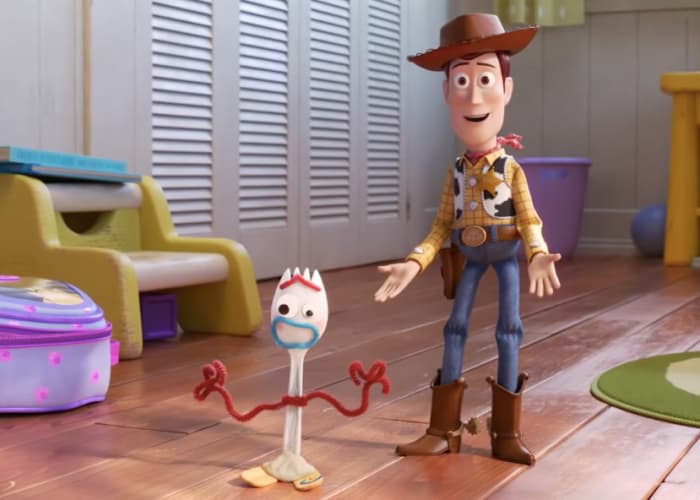
No one wanted or needed a Toy Story 4. The trilogy was perfect. The third film closed the door not just on Andy’s buddies, but on all of our childhoods. Shed a tear, but the cycle of imagination and play moves forever forward from teen to child. And yet, we should never doubt in Pixar, especially where this particular franchise is concerned. Josh Cooley, the head of story on Inside Out, joined John Lasseter as co-director on the fourth film, but when Lasseter had to bail…for reasons…Cooley took the reins on the sequel. Toy Story 4 boldly tackles a new era of toyhood for Woody (Tom Hanks), when one child does not require his assistance, but all children. Here we meet a cowboy in crisis, and through the help of an army of lost co-workers, he discovers a new purpose and gives confidence to those who turn from the known quantities of their lives only to embrace the wonder of new possibilities. Complacency is not the goal. Challenge breeds happiness.
Chiwetel Ejiofor (The Boy Who Harnessed The Wind)
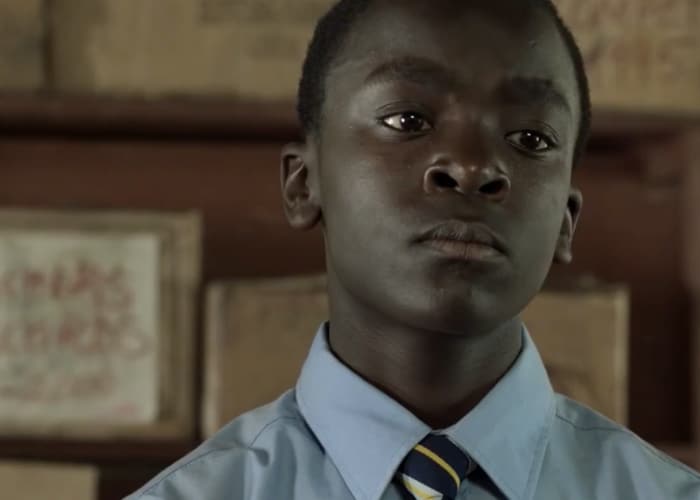
In this lush and loving adaptation of William Kamkwamba’s heroic memoir, Chiwetel Ejiofor honors the ingenuity of a mind confined by circumstance. The young Kamkwamba (Maxwell Simba) refused to allow his people to be swallowed by economic, political, and natural disasters. When he finally gains access to the school library and applies his brain to the knowledge contained within one tiny book, Kamkwamba pulls his village from the brink of oblivion. Ejiofor’s film quietly reveals how the denial of educational resources is as tragically deadly as the denial of food. The Boy Who Harnessed The Wind is not some stern lesson or a handy two-hour guide to compassion and inspiration. No, the film is an exhilarating thriller of a mind deprived, and a race against an apocalypse.
Alma Har’el (Honey Boy)
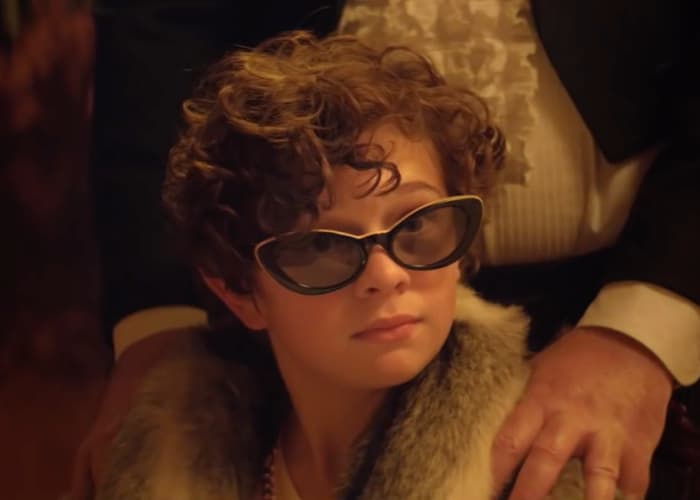
Alma Har’el didn’t need Honey Boy, but Honey Boy certainly needed Alma Har’el. She spent the last decade devoted to propelling the artistry of the nonfiction narrative (see Bombay Beach!). All the skills she honed in that format come rushing to fruition in her semi-fictional narrative debut. On paper, Honey Boy reads like a potential self-care dumpster fire. Originally conceived as a form of therapy for Shia LaBeouf, the film dares to probe his crumbling psyche by splaying his unique childhood onto the butcher’s table that is the silver screen. There are many moments where the audience feels like they have snuck their way into his private therapy sessions, experiencing a deeply personal trauma as entertainment. If not for the deft and careful direction of Alma Har’el, Honey Boy might have transformed into either the worst kind of exploitative voyeurism or self-indulgent drivel. As is, Har’el and LaBeouf offer a warm, empathetic embrace of a film, one that operates as an intimate and relatable deconstruction of anguish. Honey Boy is a miracle movie. It is an idea I waded into with great trepidation, but celebrate afterward as a triumphant and unifying human work.
Rashid Johnson (Native Son)
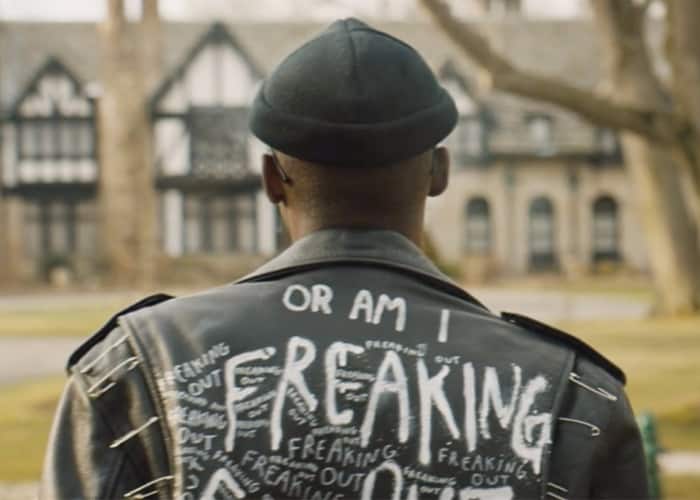
Richard Wright’s novel is a sacred text. Many would never consider the alteration of a single line. Rashid Johnson respectfully disagrees. Removing the narrative from its original timeframe as well as the classrooms in which it’s annually celebrated, the director and his screenwriter, Suzan-Lori Parks, inject the internal and external terrors of Bigger Thomas (Ashton Sanders) with profound relevance. Native Son is not chained to the past. The experiences within are, unfortunately, forever in our present and future. When the final moments of the story arrive, they feel like just another afternoon in America. The coldness of the thought sickens the stomach. Do we dare to prevent a different outcome? Probably not.
Brie Larson (Unicorn Store)
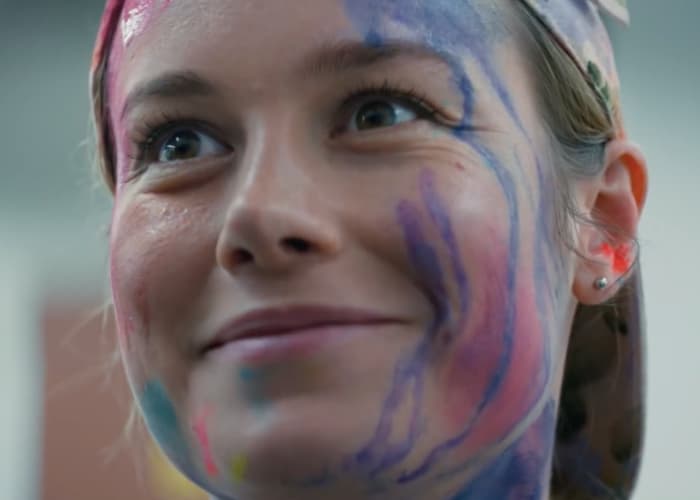
Brie Larson‘s directorial debut is a bright, beaming assault of whimsy sharpened to penetrate the broodiest of cynics. When a mysterious salesman (Samuel L. Jackson) gives Kit (Larson) the opportunity to own everything her childhood heart desired, she redirects her life to accomplish the task. Through the process of unicorn preparation, Kit confronts the needs of a child, the soul’s corruption by the dull exercise of adulthood, and the very purpose of life itself. Spoilers: the 9-to-5 and the accumulation of wealth it is not. Unicorn Store could have snowballed into cotton candy fluff, but Larson never lets go of Kit’s emotional reality. The film is a very honest question directed to an audience of addled jobbers who stumbled, dribbled, and collapsed into their current station. There is another way.
Melina Matsoukas (Queen & Slim)
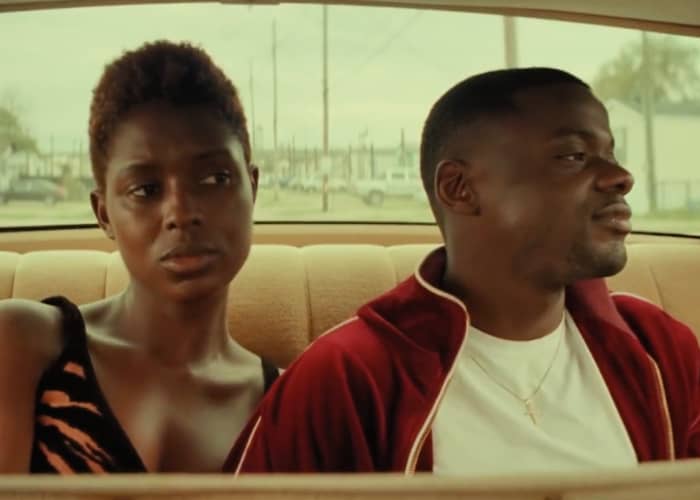
Melina Matsoukas is no mere music video director turned filmmaker. Yes, she brings the same style and eye she brought to Jennifer Lopez and Kylie Minogue, but she backs her flourish with a raging, purposeful passion. Queen & Slim zaps a tried and true fugitive love story with new life by stripping the characters of their formula, if not the narrative. These are not a pair of pistol-packing star-crossed lovers taking it to the man through brute force and furious frenzy. Queen (Jodie Turner-Smith) and Slim (Daniel Kaluuya) are just a couple of fumbling humans hoping for connection who fall victim to a corrupt, racist, and hateful system. Squeezed into conflict, they’re forced to look at each other for who they are, and they discover beauty and strength to combat those that would stamp them out. Matsoukas raises Queen & Slim to the required iconic status, offering figures of hope in the same world that is designed to withhold such warriors.
Joe Talbot and Jimmie Fails (The Last Black Man in San Francisco)
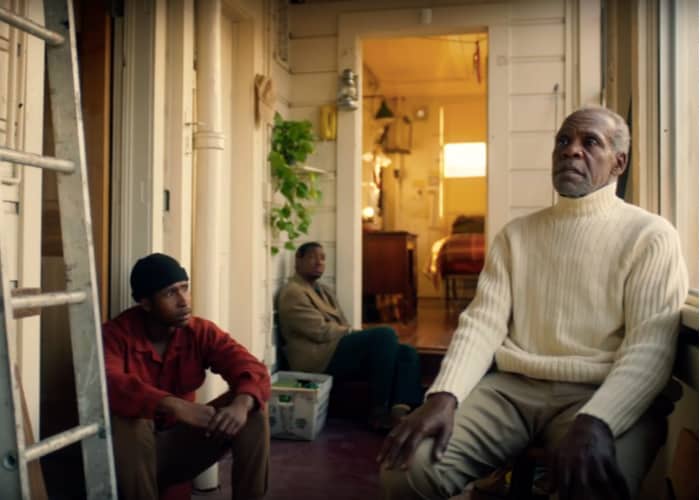
Never has a city looked as much like paradise as it does like hell. From the opening juxtaposition of a young girl staring up into the blank hazmat face of a city official, director Joe Talbot establishes the city of his birth as a contradictory landscape of beauty and horror. Based on the life experiences of star Jimmie Fails, The Last Black Man in San Francisco equally stirs emotions of rage and bliss. His saga to reclaim the family home is one packed with contempt for an apathetic yet greedy government, and to those who push such leaders into their seats of power. Talbot meticulously crafts his frame, filling every inch with a harrowing sentiment. Not a centimeter goes unused, and the result is one hell of a cinematic gut-punch.
Emma Tammi (The Wind)
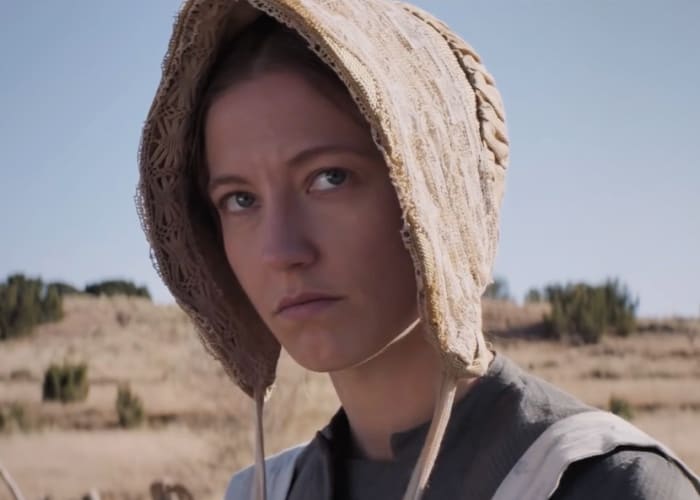
The American West was a hellscape for everyone. But where cowboys get all the cinematic attention, the stories of frontier women are often dismissed from the pop culture conversation. Emma Tammi leans into the trappings of horror to express the nightmarish scenarios that these ladies of the plains faced daily, including crushing isolation, a barren, hostile land, and the dudes and demons that roam it. The conditions would be deemed unlivable for any modern sensibility, but our predecessors did not have the luxury of any other way. You either survived the aggressively fatal environment or you did not. Tammi constructs a claustrophobic cabin beset on all sides by supernatural and human monsters, but frankly, their origins matter little. Endurance is the only point in The Wind.
Olivia Wilde (Booksmart)
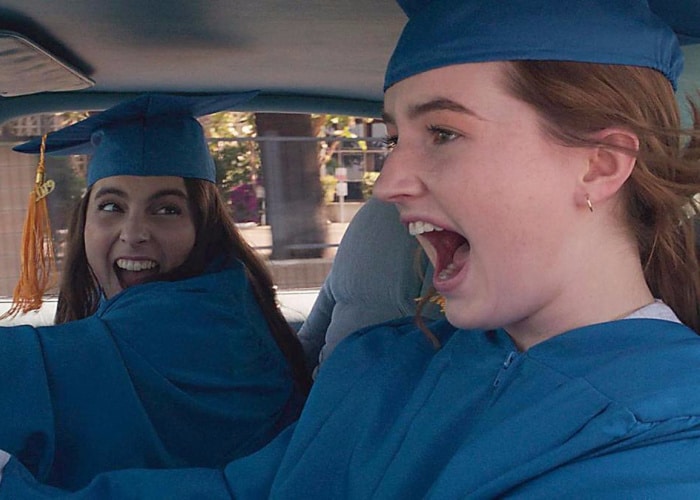
Booksmart went through many alterations before it landed as the film we got. The Black List screenplay presented by Emily Halpern and Sarah Haskins was very much the funny gender-flipped Superbad that many still seem to brand the film. Susanna Fogel severed the boyfriend-prom-hunt driving the narrative and recentered its focus on the dynamics between the two leads. Screenwriter Katie Silberman came on after Olivia Wilde took over the directing duties and brought the relationship of Amy (Kaitlyn Dever) and Molly (Beanie Feldstein) into the culture of the now. Whatever the final shooting script, the movie was in Wilde’s hands to run or fumble. She delivers a brilliantly timed showcase for Dever and Feldstein, practically guaranteeing them work for another decade or two, and a comedy that can be as utterly trashy as it is tender.
Related Topics: 2019 Rewind, Brie Larson, Chiwetel Ejiofor, Olivia Wilde, Shia LaBeouf, Toy Story 4

